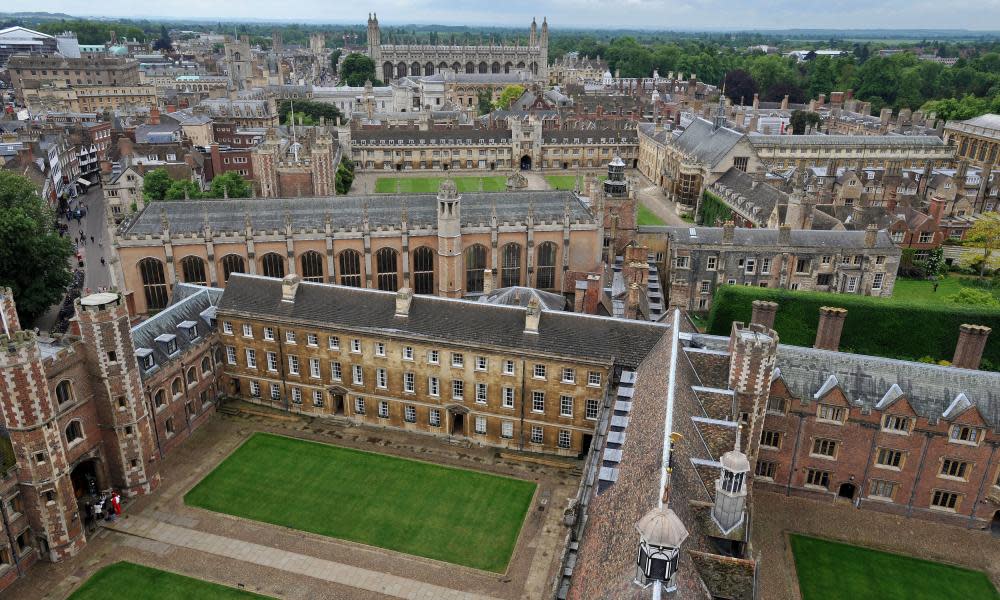Corrosive effects of the market on universities | Letters

I’m not surprised at this (Watchdog tells six universities to scrap adverts, 15 November). Ever since British universities became a “market”, they’ve adopted market ethics; especially – but not exclusively – the lower-status, and so more vulnerable, ones. I first noticed this when I was directing my own university department’s submission for the “teaching quality assurance” and “research assessment” exercises in the 1990s, the outcome of which partly determined how much money we would get. Other universities were cheating on a considerable scale: literally hiding away poor lecturers when the assessors came, for example; “sexing up” their research dossiers; and so on. It’s what happens when competition, of this material kind, comes into conflict – and it is a conflict – with academia. One of an academic’s main functions should be to determine the truth of things, insofar as that is possible. The conduct of Falmouth (of which I’d never heard) and all these other institutions named by the Guardian is nothing but a trahison des clercs. Strictly, they should be closed down.
But of course it’s not only the clercs who indulge in this sort of conduct now, in this age of “fake news” and “alternative facts”. The rule seems to be, for some politicians (I’m thinking here, of course, of Boris) and others, that what you say doesn’t have to be true, but only what you can get away with. Isn’t this another example of late capitalist values spreading throughout society?
Bernard Porter
Emeritus professor of modern history, Newcastle University
• Peter Scott (Our cowed academics can no longer see off this impudent assault on their autonomy, 7 November) believes that no one seems to question the “detailed subordination of higher education to the state”. He is almost right. Universities, as communities of staff and students engaged in study, have long questioned the measures imposed on us. We have, however, been sold out by a venal and mediocre caste of vice-chancellors who, far from being “cowed”, have collaborated with the subordination to which Professor Scott refers (Tef, Ref, NSS, Prevent, immigration controls, etc), seeing it as useful in subordinating staff to the demands of their corporate vision. These vice-chancellors have shown little or no concern for university autonomy, except when their own extravagant pay and perks are questioned, at which point they choose to spy the thin end of a Stalinist wedge.
In this context, the “fact that academic freedom was now written into law” is more concern than comfort. The Higher Education and Research Act 2017 contains a requirement (section 14) that the Office for Students publish the principle that staff have “freedom within the law to question and test received wisdom”, but the protection for “academic freedom” appears in section 36, where this freedom is defined, with regard to staff, as the freedom of institutions “to determine the criteria for the selection, appointment and dismissal of academic staff”. In other words, in the act, “academic freedom” is not the freedom of the academic to do their job but the freedom of their employer to hire and fire them as they please.
Michael Carley
President, University and College Union, University of Bath
• Your article (Ex-Big Issue seller wins place at Cambridge University, 9 November) was an inspirational story of personal motivation and achievement which may offer encouragement to others. But it is disappointing that it did not also underline the importance of the Pathway and Access courses at FE colleges in contributing to social mobility and offering educational opportunities to those who, for many reasons, have struggled at school. I write as someone who also attended an Access course at CRC and obtained a university place. My Access student group was the most diverse educational group I have ever experienced, with ages from 19 years to 60 years, all social classes, different ethnicities and religious beliefs. This was an enriching and challenging experience in itself. The support and encouragement of tutors combined with excellent teaching skills enabled students to grow in confidence and it was humbling to realise the potential that can go undiscovered. When some students obtain their degrees they email their Access tutors to share their success and express gratitude for the encouragement they received. While it is good that top universities like Cambridge are accepting students from Access courses, the achievement of the necessary qualifications and confidence to apply for such places involves the dedication of tutors who are willing to see the potential in all of us.
Jean Goodrick
Cambridge
• With reference to your article (‘Open the doors and let these books in’, Review, 11 November) and previous articles on the Cambridge University English syllabus, I was disappointed that Guardian journalists seem to think that Cambridge represents the rest of UK universities. I have been in the UK 21 years, and to my knowledge most British university English literature syllabi include many postcolonial, multi-ethnic, LGBTQ+ and women writers in widely accessible modules on British literature, postcolonial lit, world literatures and global lit. It may not be surprising that Cambridge is slow to adapt its syllabus. As Max Beerbohm said of another ancient university, its movement may be “no more than protests against the mobility of others”. But for Guardian journalists to consider it representative – or news for the rest of the UK – suggests naivety or elitism. We had these debates at Stanford in California in 1982, subsequently called in the media the “culture wars”. Fortunately for most unis in the UK, multicultural syllabi are not news.
Regenia Gagnier
Professor of English, University of Exeter
• Join the debate – email guardian.letters@theguardian.com
• Read more Guardian letters – click here to visit gu.com/letters

 Yahoo News
Yahoo News 
